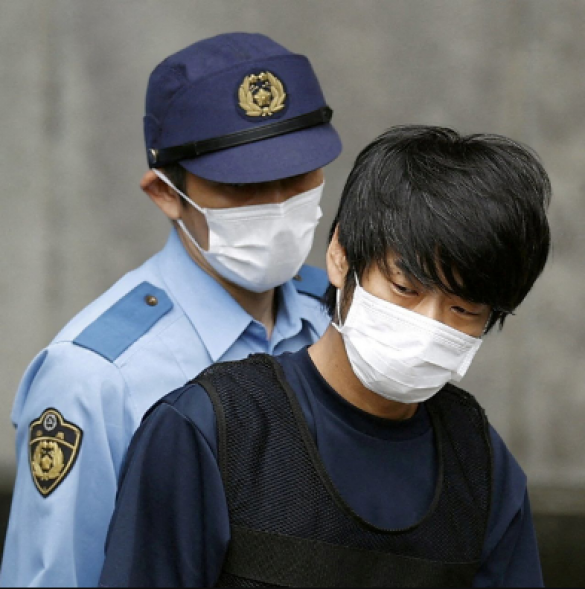
TOKYO: The suspect in the assassination of former Prime Minister Shinzo Abe has been officially charged with murder by Japanese prosecutors and will now face trial, a court announced on Friday.
Tetsuya Yamagami is accused of shooting Abe outside a train station in Nara, western Japan, in July while the former prime minister was giving a campaign speech. Yamagami was immediately taken into custody. He then underwent a mental evaluation for about six months, which according to prosecutors showed his readiness to stand trial.
Yamagami was also charged with breaking gun control laws, according to the Nara District Court.
Also Read: UN Women at Davos 2023- Advancing Gender Equality
According to police, Yamagami claimed to them that he killed Abe, one of Japan's most prominent and polarizing politicians, because of Abe's alleged affiliation with a religious movement he hated. Yamagami claimed in his statements and in posts on social media that were attributed to him that he harbored resentment because his mother had given huge sums of money to the Unification Church, which ruined his family's finances and ruined his life. Done.
One of his lawyers, Masaaki Furukawa, told The Associated Press on Thursday that Yamagami would be held accountable for the serious consequences of his alleged actions and that his defense team would work to reduce the sentence.
Although experts claim that the death penalty is usually given for multiple murders and Yamagami could face life in prison if convicted, Japanese law allows for the death penalty for murder.
His trial has not yet been scheduled, but it is speculated that it will involve a panel of civil jurors in addition to regular bench judges, as is the case in Japan for murder cases and other serious criminal trials. According to Furukawa, due to how complex the case was, it would take months for his trial to begin.
Also Read: Police in South Korea attribute a fatal Halloween crush to poor planning and response
Police are reportedly looking at adding more charges, such as manufacturing weapons, breaking laws on explosives, and causing property damage to buildings.
Some Japanese have shown sympathy for the Yamagami, particularly those who have suffered as descendants of members of the Unification Church, a group that is regarded as a cult in Japan and known to make large donations. Known to put pressure on members.
Many people have sent care packages to Yamagami's family or detention facility, and thousands have signed a petition asking for a pardon for him.
Since Abe's grandfather, former prime minister Nobusuke Kishi, had helped the church establish roots in Japan in the 1960s because of their shared interests in conservative and anti-communist causes, investigations into the matter revealed that the party and the church There were cordial relations between the years. ,
Fumio Kishida, the current prime minister, has lost support for his handling of the church controversy and his insistence on holding a rare, controversial state funeral for Abe.
Kishida restructured his cabinet in August to rid it of ministers with religious affiliations, but a party investigation released in September revealed that nearly half of the 400 national lawmakers had church affiliations.
Kishida, who claimed to have no ties to the church, made a commitment that members of his party would sever contact with the organization, and his administration launched an investigation that could result in the revocation of the church's religious status.
Also Read: Budapest stabbing by a man results in the death of one police officer.
Although experts claim that the law is insufficient, the government also passed one to help those harmed by the church's fundraising methods.